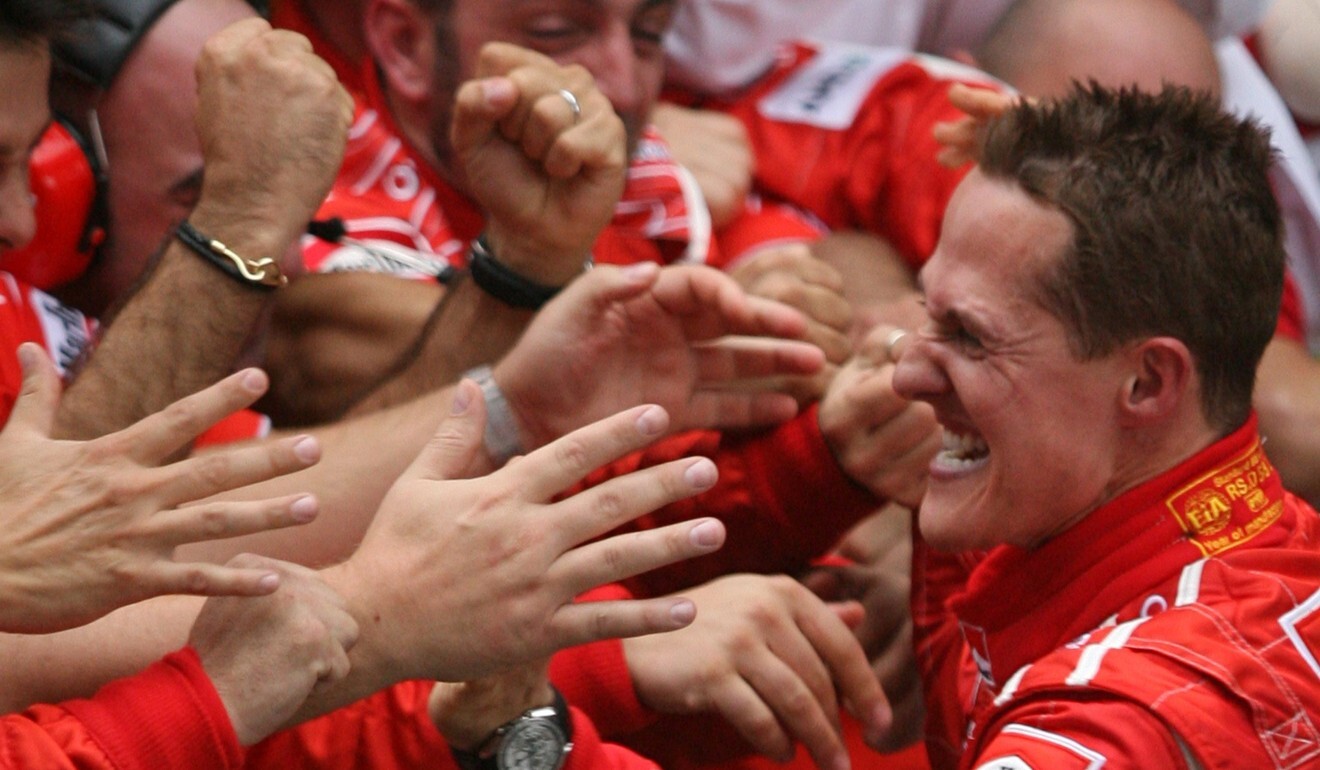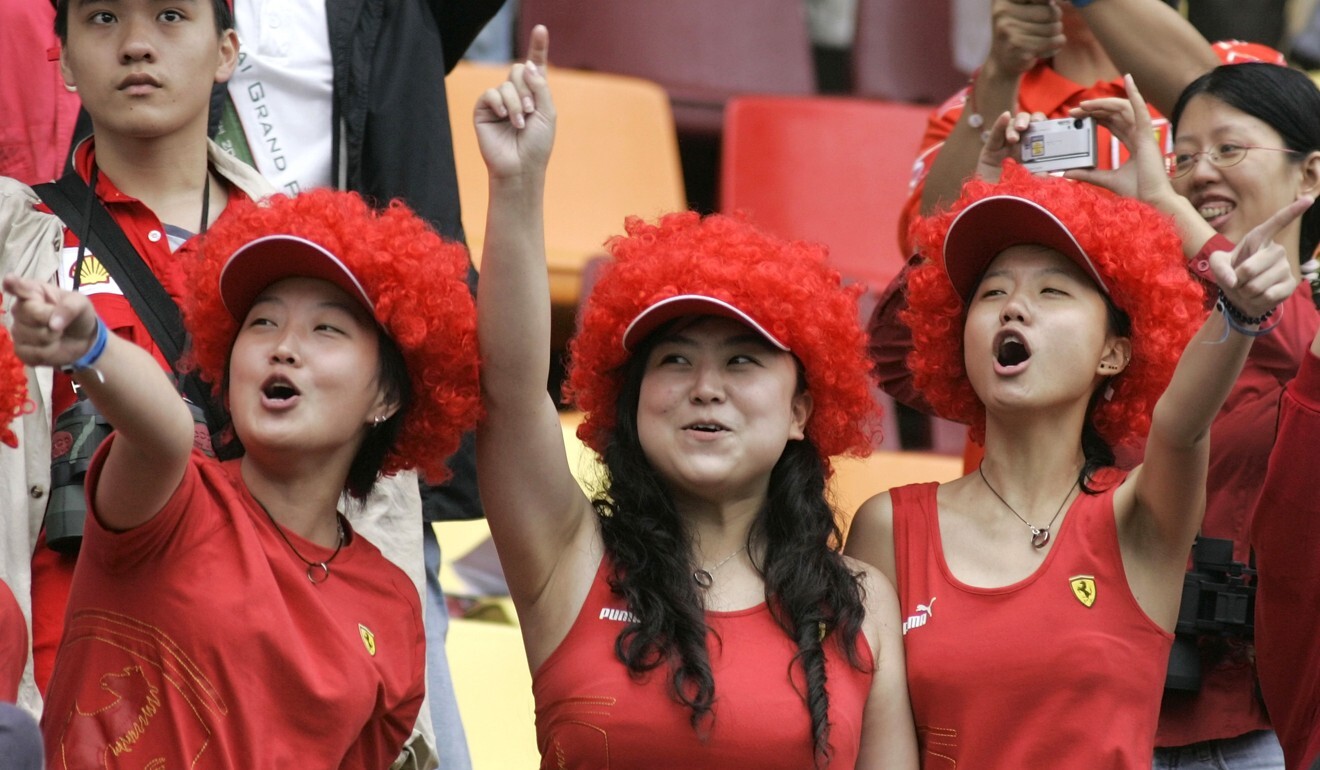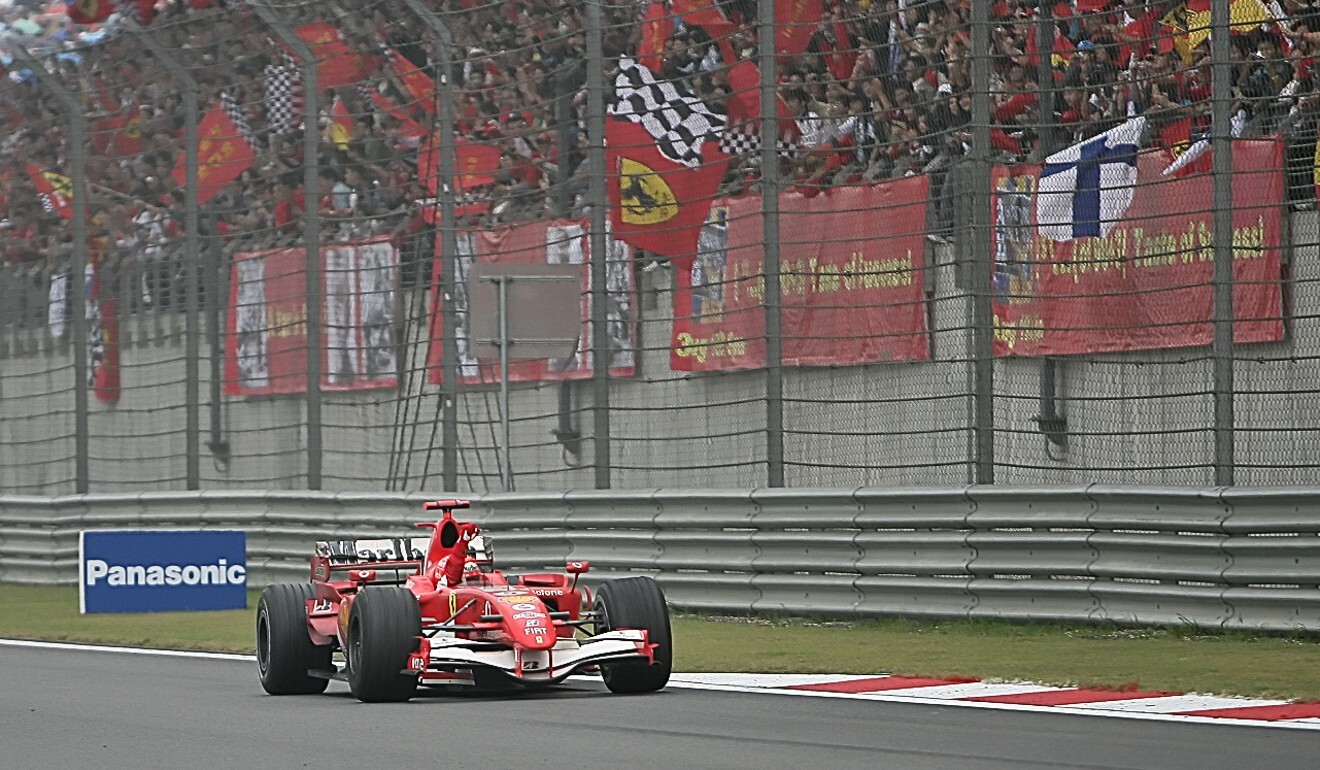
On this day: Michael Schumacher’s last F1 win at Chinese Grand Prix in Shanghai
- German’s 91st win came at third attempt for Ferrari in Shanghai in 2006 and is soon expected to be matched by Lewis Hamilton
- Health of record world champion in the news again as son Mick prepares to make Formula One debut
Michael Schumacher set a record for the longest gap between first and last wins with what would prove to be his last Formula One victory in Shanghai on October 1, 2006.
That record has since been passed – Kimi Raikkonen did so at the 2014 US Grand Prix, nearly 15 years after his first win in Malaysia in 2003, eclipsing Schumacher’s 14-year gap between Belgium in 1992 and China in 2006. Raikkonen has not won since, by the way.
A more interesting record is that Schumacher’s win in Shanghai was his 91st in Formula One. It is a record that is soon expected to be broken by British Mercedes driver Lewis Hamilton, who sits on 90 wins.
It is such a feat that Netflix were with Hamilton at Sochi at the last Grand Prix, where he was given two penalties and finished on the podium instead of being the race winner.

The 35-year-old Briton, whose career began in 2007 after Schumacher first retired, will no doubt match the sport’s greatest driver – he has a better win percentage record from his starts than one of the drivers he most admired, although Schumacher’s 91st win in Shanghai came in his 246th start and Sochi was Hamilton’s 260th.
Hamilton, in the run-up to his chance to equal Schumacher’s record with a win in Sochi, noted the German’s influence, notably his last-ever race in Abu Dhabi in 2012.
“My first memory [of Schumacher] is probably when he won at Imola when Ayrton [Senna] died [in 1994]. I watched his success from there,” Hamilton said ahead of Sochi. “I met him once the first time at the karting track he has at Kerpen and it was amazing as a kid to to be on the same track as him. I got a moment to talk to him.
“My fondest memory was in Abu Dhabi when we exchanged helmets. That was really big for me, for him to take a moment out of his day to exchange helmets with me. That is the most valuable helmet I have. We never had any deep conversations, it was just pure admiration.”
The numbers take nothing away from Schumacher, who after retiring at the end of the 2006 season returned to F1 from 2010-2012.
A year later the most successful driver in the sport with seven titles had a skiing accident that put him into a medically induced coma after sustaining serious head injuries.
Schumacher’s son Mick, an F2 driver who is in line for a first F1 race weekend in Germany on October 9, was skiing with him when the accident happened.
The F1 legend’s well-being since has been the subject of much debate with former Ferrari boss Jean Todt saying he was “still fighting” earlier this month.
Elisabetta Gregoraci, ex-wife of Benetton boss Flavio Briatore, who Schumacher began his F1 career with, said this week on Italian Big Brother that, “Michael doesn’t speak, he communicates with his eyes”.
It’s all a far cry from Schumacher’s last stand atop an F1 podium in a 2006 Shanghai Grand Prix that he was not expected to win.
He had never won in Shanghai since the Shanghai International Circuit joined F1, finishing 12th, from 20th on the grid, in 2004 and then spinning off a year later after starting in fifth.

By 2006, the first year in which he would retire, his star was still at its imperious height – he was the biggest draw in the sport, the reigning champion and chasing an eighth driver’s title.
It was clear who the Chinese public loved: “Schumi I love you and only you. When you leave F1 I won’t watch again,” said one banner that filled the stands during a practice session.
After a bad start to the season, Schumacher had made up ground and victory in China was a chance for “Schumi” to take further advantage, but it would not be that simple. Alonso had pole and Schumacher started in sixth, but he was soon in fifth.
Schumacher changed that in the 29th lap when he and Giancarlo Fisichella both passed Alonso’s Renault. The leading pair pitted on 31 and then Schumacher passed the Italian over the grass, using two wheels to outmanoeuvre him.

“It was clear that turn one would be difficult, I knew from practice. I was thinking it could be an issue with Giancarlo and there it was,” Schumacher said in the post-race press conference.
“We found the right moment to change to dry tires and we had enough of a gap to drive it safely home,” Schumacher said.
“In the end, there were not enough laps left,” Alonso said. “So it was a bad day but this is a fantastic fight for the championship and I go to Japan feeling really confident.”
The against-the-odds win meant that dreams of another Schumacher title were alive.
“We need everyone out there to cross their fingers for us and then we’ll get it,” Schumacher said, after holding a 25-point lead to being level on points but with more wins. The pair were tied on 116 points but the German had seven wins to the Brazilian’s six.
Japan ended with an Alonso win, from pole, while Schumacher retired after engine trouble for the Brazilian to take a 10-point lead at the top of the driver’s championship.
That meant that the German would have to win the season-climax Brazilian Grand Prix and Alonso not score a point so he conceded the title. As it was, Schumacher finished fourth and Alonso second.
Schumacher would never win another race nor championship – Monaco in 2012 was his sole podium in his return – but Shanghai in 2006 would be voted the greatest ever Chinese Grand Prix by F1 Twitter fans in 2015.
This year there is no Chinese Grand Prix because of the coronavirus, indeed it was the first to go, but Hamilton can match the German’s record as soon as the Nurburgring on October 11.

